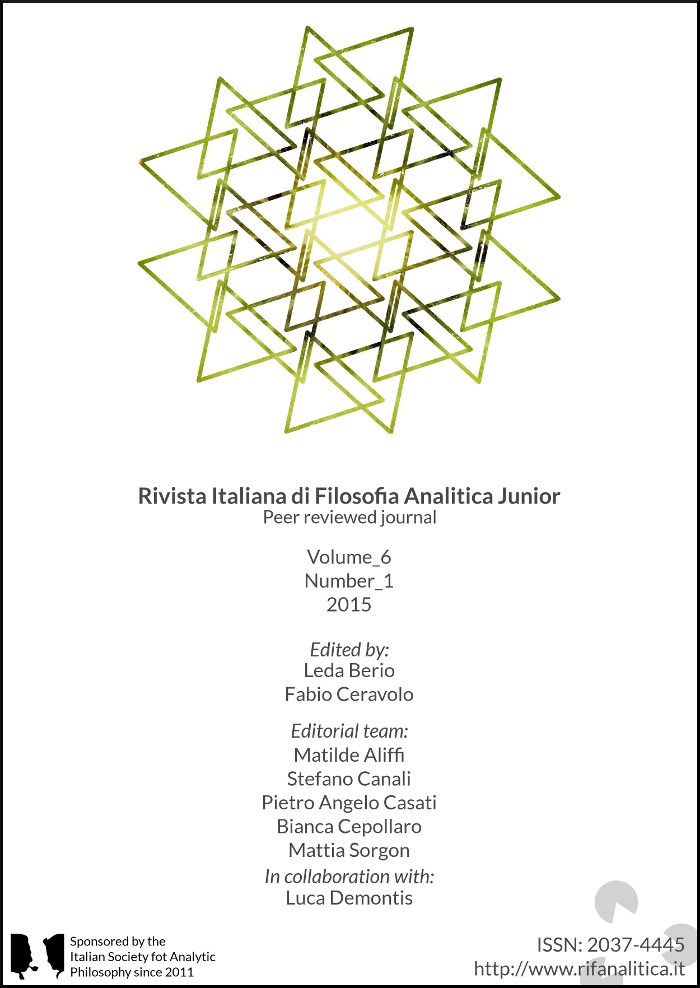Causal and Epistemic Relevance in Appeals to Authority
DOI:
https://doi.org/10.13130/2037-4445/4673Abstract
Appeals to authority have a long tradition in the history of argumentation theory. During the Middle Age they were considered legitimate and sound arguments, but after Locke’s treatment in the Essay Concerning Human Understanding their legitimacy has come under question. Traditionally, arguments from authority were considered informal arguments, but since the important work of Charles Hamblin (Hamblin, 1970) many attempts to provide a form for them have been done. The most convincing of them is the presumptive form developed by Douglas Walton and John Woods (Woods, Walton, 1974) that aims at taking into account the relevant contextual aspects in assessing the provisional validity of an appeal to authority. The soundness of an appeal depends on its meeting the adequacy conditions set to scrutinize all the relevant questions. I want to claim that this approach is compatible with the analysis of arguments in terms of relevance advanced by David Hitchcock (Hitchcock, 1992). He claims that relevance is a triadic relation between two items and a context. The first item is relevant to the second one in a given context. Different types of relevance relation exist, namely causal relevance and epistemic relevance. “Something is [causally] relevant to an outcome in a given situation if it helps to cause that outcome in the situation” (Hitchcock, 1992, p. 253), whereas it is epistemically relevant when it helps to achieve an epistemic goal in a given situation. I claim that we can adapt this conception to Walton and Krabbe’s theory of dialogue type (Walton, Krabbe, 1995), seeing the items of a relevance relation as the argument and its consequence and the context as the type of dialogue in which these arguments are advanced. According to this perspective, an argument from authority that meets the adequacy conditions has to be considered legitimate because it is an epistemically relevant relation. Therefore, my conclusion is that an analysis of appeals to authority in terms of relevance can be a useful tool to establish fallaciousness or legitimacy of such a kind of argument even within the established paradigm of argumentation theory.Downloads
Published
2015-05-07
Issue
Section
Articles
License
The authors keep the intellectual property for their work, while the journal owns the exclusive rights concerning the first publication of the articles. The journal will also reserve the rights to create an Open Access archive under the Creative Commons License. Articles are published under a Creative Commons By Attribution License.


